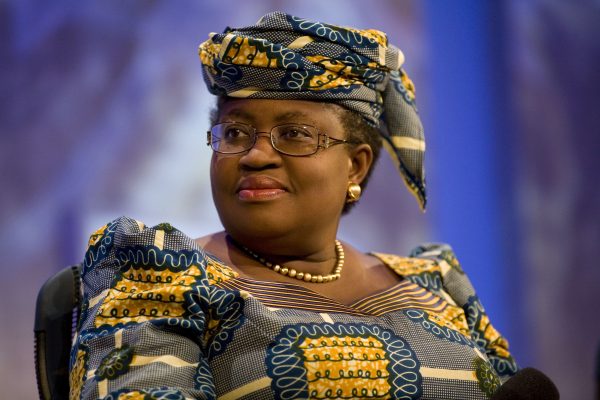Former Nigerian finance minister, Ngozi Okonjo-Iweala, has suggested that she might still be interested in becoming president of the World Bank. She dropped this hint in an interview with CNN’s Richard Quest while she was at the World Economic Forum in Davos, Switzerland, last week.
There’s been some noise around the top job at the Bretton Woods Institution, following the surprise announcement by its current holder, Jim Yong Kim, that he would be stepping down in February. While it’s not yet clear which way the race to replace him is tilting, analysts aren’t ruling out a strong bid by Okonjo-Iweala, who contested the position with Kim in 2012.
At the program, aired by US-based international broadcaster CNN, she had said that she would have to be nominated by “the right persons”- an allusion to the process through which the World Bank elects its presidents. While she insists that she’s contented with where she is at the moment, commentators are pointing to her own words as a sign that she could be eyeing the World Bank job.
As she indirectly pointed out in the interview, Okonjo-Iweala will need to be nominated by members of the bank’s board of directors to stand a chance of getting elected. Other formal criteria include a proven track record; experience with managing large organizations; the possession of a clearly defined path for the institution and the ability to communicate this; and the skill of impartial diplomacy.
Apart from the nomination which she might be
The Other Obstacle Okonjo-Iweala Has to Surmount
A decades-old unwritten rule may be the biggest hurdle she faces on the way to becoming president. It relates to a long term policy in which the Americans have been at the helm of affairs at the World Bank, and the Europeans have presided over the International Monetary Fund. This ‘gentleman’s agreement’ between Western powers hasn’t always gone unchallenged, but it has remained intact.
Analysts say this power sharing deal was ultimately responsible for Okonjo-Iweala’s failure to get the World Bank Presidency in 2012. This was despite her strong antecedence and the backing she received from the African block. Instead, Jim Yong Kim, an American, won out.
This difficulty appears to have been exacerbated by the current White House’s stance with respect to the USA’s engagement with the world. The Trump administration’s commitment to protecting America’s interest doesn’t seem to bode well for any challenge to the status quo at the World Bank. It’s been suggested that any successful candidate will have to get the blessings of Mr Trump himself.
In the end, the battle for the presidency at the World Bank may come down to a tussle between establishment interests and the Trump administration’s preferences. If there’s a deadlock, the door may be open for the institution’s CEO and interim President, Kristalina Georgieva, to take the role permanently.
Okonjo-Iweala may have the goodwill of many developing country representatives at the World Bank, and perhaps the support of a number of board members as well. The fractious relationship which the US has with much of the rest of the World at the moment may also play into her hands; countries may be more likely to rebel against the ‘unwritten agreement’ which has kept out non-Americans from the bank’s presidency since its beginnings in 1944.
Featured image source: thenationonlineng.net


